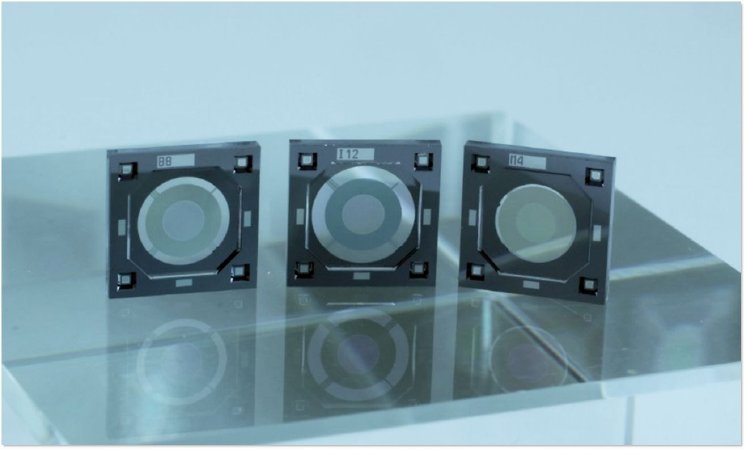Quick and reliable diagnosis of disease progression
The coronavirus pandemic poses a challenge for medical diagnostics. Alongside serious cases, the SARS-CoV2 virus also causes mild symptoms, but these can very quickly worsen. Currently, however, continuous patient monitoring is available only on intensive care wards. When someone’s health suddenly deteriorates, there is often some delay to this being recognized, meaning the patient is taken to hospital too late. This is precisely where the M3Infekt cluster project comes in. Using various technologies, the mobile system acquires, analyzes and fuses relevant biosignals, which enables a valid diagnosis to be made of the patient’s condition and the progression of the disease.The idea is to provide a long-term solution for decentralized monitoring of patients on normal wards and in non-hospital environments using multimodal parameters of the cardiovascular system (including heart rate, ECG, oxygen saturation, blood flow) and respiratory parameters (including respiratory rate/volume, breath analysis). Machine learning methods serve as the basis for evaluating these parameters, facilitating diagnosis and enabling integration of the system into different deployment and application scenarios, regardless of location.
Affordable healthcare benefits patients and health services
The planned system has a modular and mobile structure with standardized, open interfaces. These enable easy integration into other platforms and make the system suitable for use with various diseases, including influenza, pneumonia and sepsis. It will enable continuous monitoring, previously used only for patients in intensive care, to be rolled out to non-hospital scenarios, such as short- and long-term care, outpatient treatment or home settings. This way, patients can remain in a favorable environment and move to a hospital only if their condition suddenly deteriorates.
Fraunhofer IIS is the project lead in the M3Infekt consortium, which comprises ten Fraunhofer Institutes and four medical partners. Together, they form an interdisci-plinary group built on complementary areas of expertise. The M3Infekt project is funded as part of the Fraunhofer-Gesellschaft’s internal programs.
Partners:
Fraunhofer Institute for Integrated Circuits IIS
Fraunhofer Institute for Integrated Circuits IIS, Division Engineering of Adaptive Systems EAS
Fraunhofer Institute for Photonic Microsystems IPMS
Fraunhofer Institute for Ceramic Technologies and Systems IKTS
Fraunhofer Institute for Electronic Nano Systems ENAS
Fraunhofer Institute for High Frequency Physics and Radar Techniques FHR
Fraunhofer Institute for Nondestructive Testing IZFP
Fraunhofer Institute for Structural Durability and System Reliability LBF
Fraunhofer Research Institution for Microsystems and Solid State Technologies EMFT
Fraunhofer Project Hub for Microelectronic and Optical Systems for Biomedicine MEOS
Clinical partners:
Klinikum Magdeburg
Charité – Universitätsmedizin Berlin
Universitätsklinikum Erlangen
Universitätsklinikum Dresden
Contact:
Dr. Christian Münzenmayer (Fraunhofer IIS)
Dr. Michael Scholles (Fraunhofer MEOS)
Continuously tunable optical filters as a development contribution of Fraunhofer ENAS
As a partner in the M3Infect consortium, Fraunhofer ENAS develops continuously tunable and thus wavelength-selective Fabry-Pérot filters (FPF) with large optical aperture for the visible spectral range from 450 nm to 700 nm. The goal is to combine these filters with a Vision-On-Chip (VSoC) system developed and provided by Fraunhofer IIS/EAS. The VSoC system is a software-programmable image sensor consisting of powerful camera hardware and flexible algorithms, enabling high frame rates and short response times with low power consumption. In combination with the FPF, a hyperspectral camera system is to be developed, which enables early detection and monitoring of patients suffering from COVID-19 by evaluating the temporally resolved hyperspectral image information. For example, respiratory rate, pulse, skin blood circulation or color changes of the skin can be evaluated, which allows conclusions about a possible COVID-19 disease. The hyperspectral camera system to be developed offers the advantage of a contactless early detection and monitoring possibility, which can be used in clinics, in medical offices, in elderly people’s homes and nursing homes or in their own residence. It is also possible to detect and monitor other infectious diseases that affect the skin, breathing rate or pulse at an early stage by using artificial intelligence.

